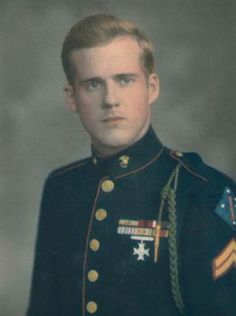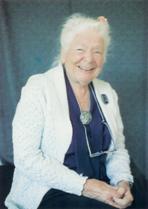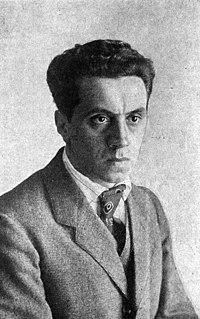A Quote by Eugene B. Sledge
As I crawled out of the abyss of combat and over the rail of the Sea Runner, I realized that compassion for the sufferings of others is a burden to those who have it. As Wilfred Owen's poem "Insensibility" puts it so well, those who feel most of others suffer most in war.
Related Quotes
Compassion- which means, literally, "to suffer with"- is the way to the truth that we are most ourselves, not when we differ from others, but when we are the same. Indeed the main spiritual question is not, "What difference do you make?" but "What do you have in common?" It is not "excelling" but "serving" that makes us most human. It is not proving ourselves to be better than others but confessing to be just like others that is the way to healing and reconciliation.
Some individuals may perceive their losing fight with gravity as a sharp pain in their back, others as the unflattering contour of their body, others as constant fatigue, yet others as an unrelentingly threatening environment. Those over forty may call it old age. And yet all these signals may be pointing to a single problem so prominent in their own structure, as well as others, that it has been ignored: they are off balance, they are at war with gravity.
Today's parents have little authority over those others with whom they share the task of raising their children. On the contrary,most parents deal with those others from a position of inferiority or helplessness. Teacher, doctors, social workers, or television producers possess more status than most parents.... As a result, the parent today isa maestro trying to conduct an orchestra of players who have never met and who play from a multitude of different scores, each in a notation the conductor cannot read.
Living Holy Week following Jesus means learning how to come out of ourselves to reach out to others, to go to the outskirts of existence, to be the first to move towards our brothers and sisters, especially those who are most distant, those who are forgotten, those who are most in need of understanding, consolation and help. There is so much need to bring the living presence of Jesus, merciful and full of love!
[S]uppose the mind of [a] friend of humanity were clouded over with his own grief, extinguishing all sympathetic participation in the fate of others; he still has the resources to be beneficent to those suffering distress, but the distress of others does not touch him because he is sufficiently busy with his own; and now, where no inclination any longer stimulates him to it, he tears himself out of his deadly insensibility and does the action without any inclination, solely from duty.
Those who know others are intelligent Those who know themselves have insight. Those who master others have force Those who master themselves have strength.Those who know what is enough are wealthy. Those who persevere have direction. Those who maintain their position endure. And those who die and yet do not perish, live on.



































